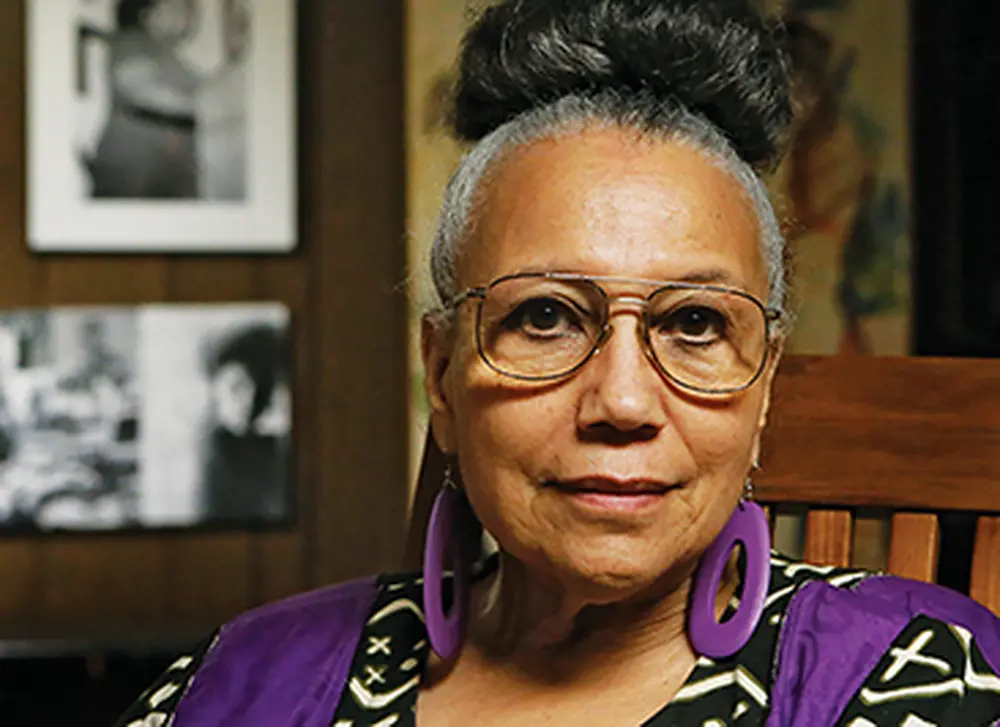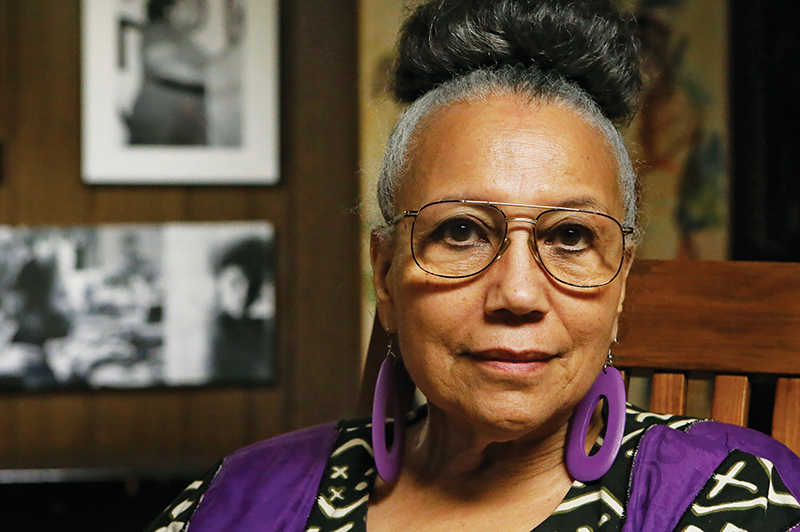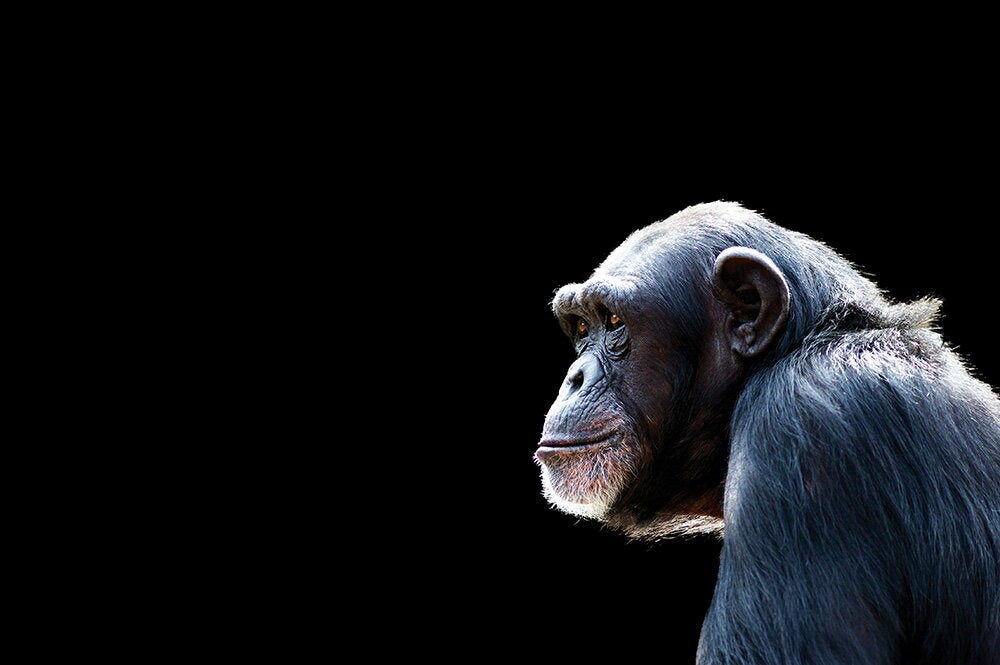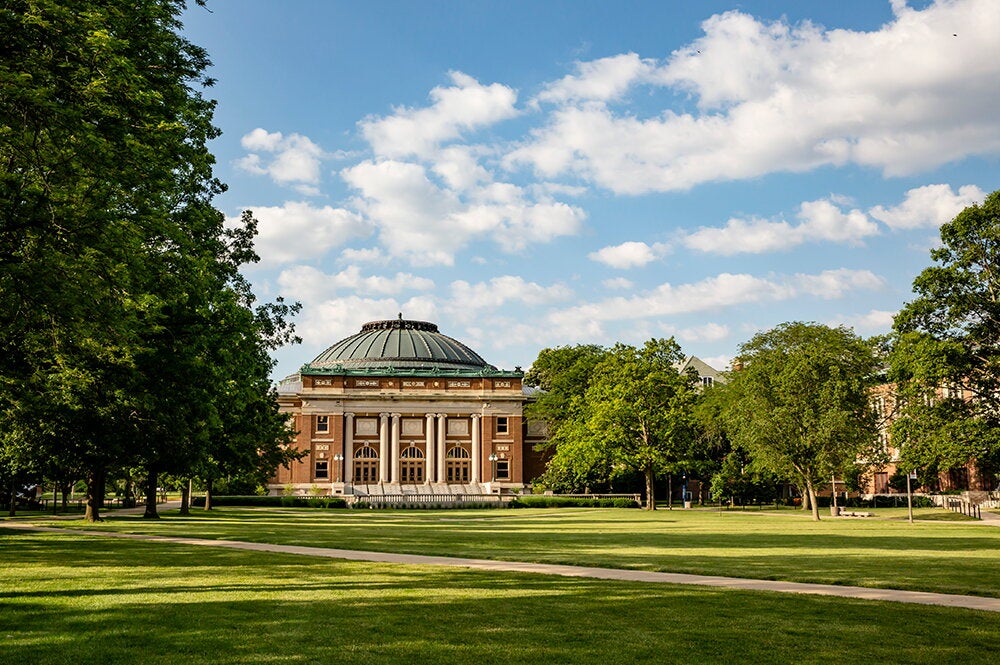

Doris Derby remembers the exact moment her life changed. It was May 1963, just three months before the March on Washington and Martin Luther King, Jr.’s iconic “I Have a Dream” speech. She was watching the television news and saw violence against protestors who were trying to integrate businesses down South.
“The police had German Shepherd dogs and billy clubs, and they were blasting people with fire hoses,” said Derby (MA, ’75, PhD, ’80, anthropology). “I said, ‘Oh my goodness, if people there can subject themselves to these life-threatening actions, the least I can do is go to Mississippi and use my God-given talents.’”
She decided to put her graduate school studies on hold and move from New York City to Jackson, where she became a field secretary for the Student Non-Violent Coordinating Committee.
Derby not only participated in many of the most dramatic and dangerous moments of the civil rights movement in the South, but she used her visual art, especially photography, to document what was happening. Her photographs have shown up in galleries, city halls, schools, performing arts centers, and museums across the country, such as the Smithsonian Institution in Washington D.C. and the Field Museum in Chicago. You can also find them in murals in the historical King district in Atlanta.
For this trailblazing work in the arts and on the front lines of the civil rights movement, Derby is a 2016 LAS Alumni Achievement Award winner.
Derby grew up in the Bronx in a family with a long history in the civil rights movement. Her maternal grandmother and one of Derby’s uncles were charter members of the National Association for the Advancement of Colored People, or NAACP, in the 1920s.
She also heard many family stories of discrimination. Her father, for example, graduated in civil engineering from the University of Pennsylvania—the only black in the program. But no one would give him a job in his field, so he left engineering for a career in the New York State Civil Service. He later co-founded an organization, with a handful of coworkers, to fight discrimination on the managerial level of employment, and they won the case.
Derby joined the NAACP at the age of 16. She then went to Hunter College in New York City, finishing with a double major in elementary education and anthropology, and became even more active in civil rights.
In the spring of 1961, Derby was part of an early Freedom Ride to North Carolina, where they spoke to white and black students about lunch counter sit-ins and other issues related to racism, segregation, and social justice. However, they didn’t face the violence that later Freedom Riders did.
She spent the entire summer of ’62 in Georgia, helping with voter registration and other desegregation activities in both Atlanta and Albany, and she was unexpectedly asked to integrate the Episcopal Church in Albany.
She also worked with many prominent civil rights leaders, including reverends Martin Luther King, Jr., Ralph David Abernathy, and Andrew Young, as well as Septima Clark, Charles Sherrod, and Bernice Johnson Reagon.
“It was very dangerous, with fire-bombings of houses and shoot-outs,” she recalled. “There were mass arrests of local black men, women, and children, as well as of white and black civil rights volunteers.”
After returning to New York, she began raising money for families in Albany who had lost their homes to firebombing or who had been thrown off of their land for trying to register to vote. In the spring of 1963, she helped to organize the March on Washington and witnessed Martin Luther King’s speech from up front.
A few months later, she moved to Mississippi as a SNCC field secretary, helping with voter registration and teaching adult literacy classes. She also co-founded the Free Southern Theater, a repertory theater that traveled the state putting on performances in Freedom Schools, Head Start centers, churches, and on the land of independent black farmers—“wherever we could,” she said.
In addition, she began her serious photography in Mississippi, where she joined Southern Media, a group dedicated to documenting the movement through photography and filmmaking. She also worked with the Child Development Group of Mississippi’s Head Start program and the Poor People’s Corporation, which provided economic assistance and job training through a network of cooperatives.
“Many of the black participants in the civil rights movement lost their jobs, and others quit because of racism, violence, and intimidation,” she said. “If you were a sharecropper and had any affiliation with someone in civil rights, you were told to move off the land by the landowner or boss man.”
Derby also faced discrimination and threatening run-ins of her own, such as the time she and friend tried to use a bathroom at a gas station. The gas station attendant said, “Don’t go in there,” and to make sure his message was clear, he patted his hand on the gun strapped to his hip.
In the early 1970s, Derby decided to go back to graduate school, and she chose the University of Illinois thanks to connections between Illinois anthropology faculty and the civil rights movement and students from Jackson, Mississippi.
She completed her master’s in anthropology in 1975 and her doctoral degree in cultural/social anthropology, specializing in African diaspora studies, in 1980. On campus, she was active in numerous organizations, such as the Minority Graduate Student Alliance and groups affiliated with the African American Cultural Center. She was even part of an African American dance troupe that performed at the Krannert Center for Performing Arts under the direction of visiting artists Max Roach and Abby Lincoln.
At Illinois, her anthropology professors heavily influenced her and helped to launch her into the next phase of her life, moving from activism to academics. She worked in the University of Wisconsin system for 10 year before becoming Georgia State University’s (GSU) founding director of the Office of African American Student Services and Programs, an adjunct associate professor of anthropology, and the minority advising program officer.
After 22 years at GSU, she retired in 2012, but Derby has remained active, particularly with photography, writing, filmmaking, speaking, and exhibiting her work. She has contributed stories and photography to numerous books, including “Hands on the Freedom Plow” in 2010 and “The Nation’s Longest Struggle” in 2013.
In addition, Derby co-produced the documentary, “Dirt and Deeds in Mississippi,” narrated by popular movie actor Danny Glover. The Smithsonian produced another version of the film, “Mississippi Inferno,” which received a Television Academy Honors Award in June of this year.
But despite all of the accolades, what stands out most in Derby’s mind are the sacrifices she witnessed.
“I walked away with a respect and awe for the strength and courage of ordinary black Mississippi people,” she said. “Despite incurring violence and intimidation, they remained steadfast, prayerful, and focused to go the extra mile for their freedom. Every day, I witnessed just how brave and determined people could be.”


